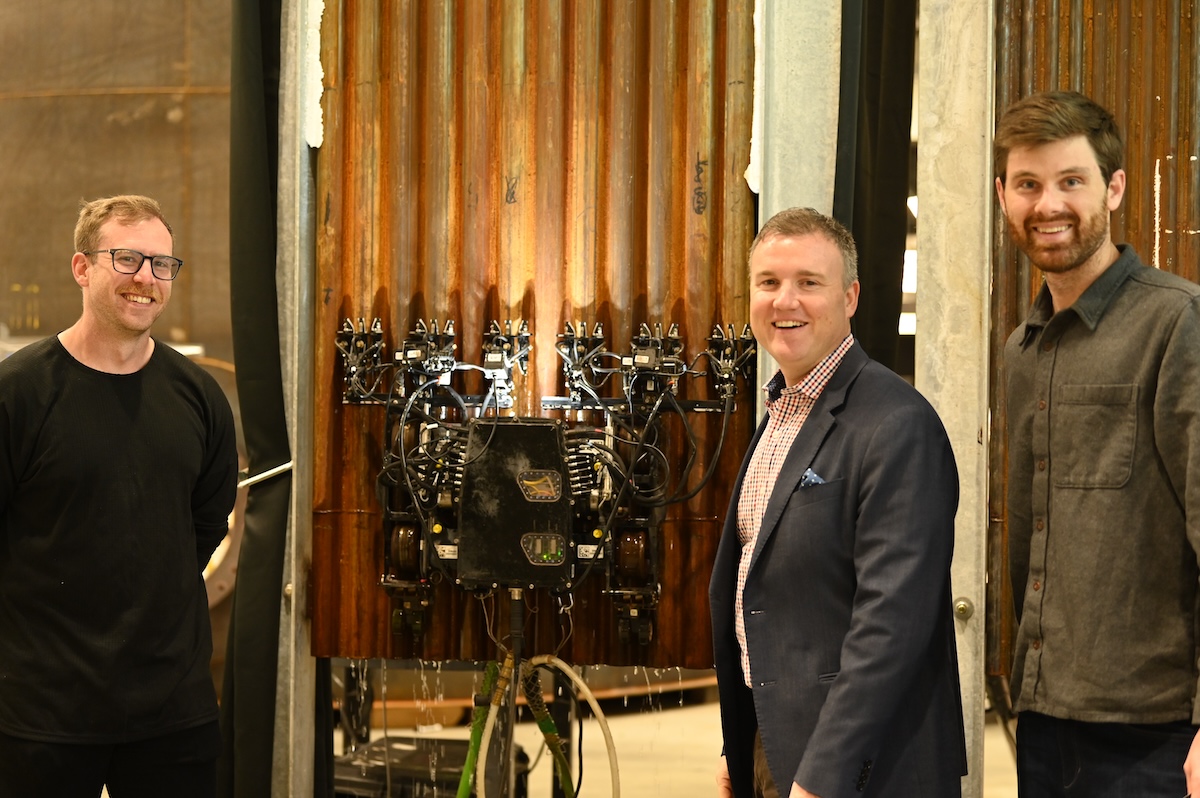From KEF Robotics to Neya Systems, in recent years, a number of Pittsburgh tech companies have been tapped by the US government to use their tech to keep operations running smoothly.
According to NavalX Strategy and Fleet Force Engagement Deputy Director Graham “Gray” Chynoweth, that’s because a lot of Pittsburgh companies are developing technology that can generate a big difference for warfighters — namely artificial intelligence and robotics, for which the region is increasingly known.
“The next applications of autonomy and robotics, computer vision, AI, those are all going to be critically important to developing capabilities that will participate in future conflicts, and hopefully deter larger conflicts,” Chynoweth told Technical.ly.
One of the most recent examples of a Pittsburgh-based company lending its expertise to the military is KEF Robotics, which landed a $1.9 million Small Business Innovative Research award from the US Army to implement novel navigation solutions for ocean-crossing aircraft. Gecko Robotics also made headlines in 2022 with an announcement of an 18-month, $1.5 million contract with the US Air Force Nuclear Weapons Center.
NavalX is tasked with bringing tools and resources to companies interested in using their technology to make a difference for sailors and marines, Chynoweth said. (Read his tips for landing a government contract here.) The organization’s leaders are excited about Pittsburgh’s burgeoning innovation ecosystem and therefore have further plans to engage with this community.
“There’s a ton of applications for the autonomy, robotics, all the stuff that’s happening,” Chynoweth said. “There’s a ton of defense applications for those. [Pittsburgh] is a natural place for us to think about ensuring that we have the footprint to do those discovery activities.”

NavalX’s Gray Chynoweth visits Carnegie Robotics in Pittsburgh. (Courtesy Pittsburgh Technology Council)
Chynoweth was in town this week on behalf of the business development group Pittsburgh Technology Council, which launched its Defense Robotics and Innovation Coalition in response to the Department of Defense’s growing interest in Pittsburgh companies.
A focus of the Tech Council’s work has been trying to break into Program Executive Offices, or PEOs, the program that manages acquisition and life-cycle support for the Navy’s non-nuclear surface ships. That’s why the Tech Council has been hosting visiting representatives from different arms of the Navy, including those focused on submarines, intelligence and electronic warfare.
As someone who has worked on both sides of such deals, Chynoweth advises that should a company be seeking a government contract, they keep in mind that relationships are everything. Executives should also keep in mind that these days the military isn’t typically looking for one-off collaborations, it’d like to be involved in the research and development of technology if possible.
“We don’t just want to do research and have that be the end result. We’re looking to deliver capability into those warfighter hands so we have you directly connected with that customer,” Chynoweth said. “We’re working on processes to engage with the acquisition enterprise, not just a research enterprise, so that when you get into a relationship with the US Navy, it doesn’t end at research, right? It moves through research, into development, and then ultimately into acquisition.”
Atiya Irvin-Mitchell is a 2022-2024 corps member for Report for America, an initiative of The Groundtruth Project that pairs young journalists with local newsrooms. This position is supported by the Heinz Endowments.Before you go...
Please consider supporting Technical.ly to keep our independent journalism strong. Unlike most business-focused media outlets, we don’t have a paywall. Instead, we count on your personal and organizational support.
Join our growing Slack community
Join 5,000 tech professionals and entrepreneurs in our community Slack today!

The person charged in the UnitedHealthcare CEO shooting had a ton of tech connections

From rejection to innovation: How I built a tool to beat AI hiring algorithms at their own game

The looming TikTok ban doesn’t strike financial fear into the hearts of creators — it’s community they’re worried about



